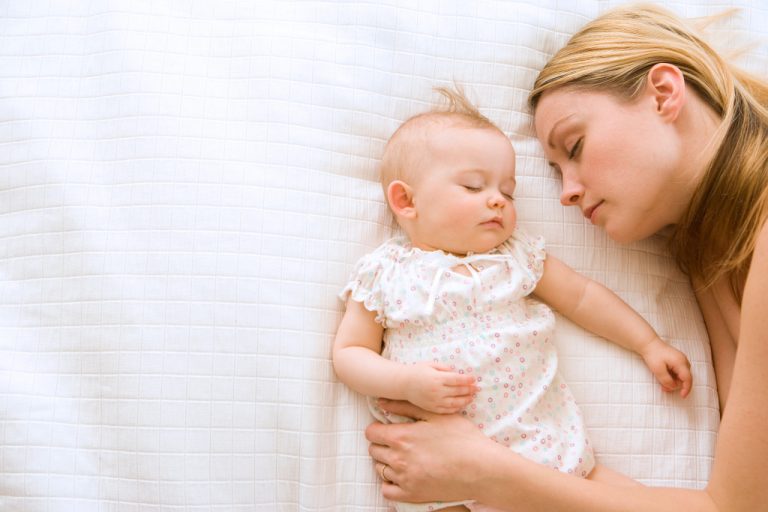- Rest and medications aid postpartum recovery.
- Postpartum depression can be caused by a sudden drop in hormones after childbirth.
- Self-care strategies such as getting enough rest and seeking professional help can help manage postpartum depression.
- Taking time out for yourself and spending time with your child is also beneficial for postpartum recovery.
- Moms benefit from improved physical health, increased self-esteem, and higher life satisfaction due to motherhood.
Being a mom is a rewarding experience that provides love and joy and offers numerous benefits. Studies have found that moms tend to live longer, healthier lives than their childless counterparts. They are more likely to be physically active, get regular checkups, and take better care of themselves due to the responsibility of caring for their children.
Moms also report greater life satisfaction and lower rates of stress and depression than those without any children. This may be partly due to the social support system they enjoy from having other moms in their community and family members who provide emotional and practical support.
Furthermore, research has found that mothers who stay at home with their children experience improved physical health and increased self-esteem compared to those who opt for paid employment outside the home. Another benefit of being a mom is that it encourages creativity in problem-solving since motherhood can often present unique challenges which require out-of-the-box thinking.
However, giving birth can be a physically and emotionally challenging experience. There can be an extended recovery period for mothers, both physical and mental. Here are some tips to help moms recover after giving birth:
Rest and Medications
Rest and medications are essential for new mothers to help them recover after giving birth. Without adequate rest, it can be more difficult for a mom to cope with motherhood’s physical and mental demands. Moreover, the stress hormone cortisol can hurt a mother’s health if she is not getting enough rest. Therefore, mothers must take time out for themselves and get sufficient sleep.
Medications can also help aid postpartum recovery. Many moms experience postpartum depression or anxiety and may need medication prescribed by their doctor to help them manage these symptoms. Depending on the severity of the condition, some women may also benefit from talking therapies such as cognitive behavioral therapy (CBT). Medications can also treat conditions such as postpartum bleeding, pain relief during breastfeeding, or labor pains.
Dealing with Postpartum

Giving birth can be an exhilarating experience. However, it can also lead to various emotions, such as exhaustion, fear, guilt, and sadness, that may manifest as postpartum depression. This condition can seriously impact the physical and psychological health of new mothers.
There are many reasons why mothers suffer from postpartum depression; here are four of them:
One cause of postpartum depression is the sudden drop in hormones after childbirth. During pregnancy, hormone levels rise significantly, affecting a woman’s metabolism, libido, and mood. Once the baby is born, these hormones rapidly decline, which can lead to feelings of sadness or anxiety.
Here are some ways in which new moms can deal with postpartum depression:
Get Plenty Of Rest
The most important thing a new mother should do is get plenty of rest. Try to nap whenever possible, even if it’s only for 15 minutes throughout the day, so your body can recover from all the changes experienced during pregnancy and childbirth. Don’t forget about good sleeping habits either; try and go to bed early enough so you get at least 8 hours every night while your baby sleeps so you both heal together!
Seek Professional Help
Suppose your feelings persist after trying self-care strategies. In that case, it might be time to seek professional help, such as therapy or counseling sessions for post-natal issues like postpartum depression. A postpartum doula can also offer invaluable resources and support through the postpartum period so you don’t feel overwhelmed.
Take Time For Yourself
Taking even 10 minutes out for yourself each day will help clear your mind and restore energy levels so that you are better prepared for parenting duties later in the day/night – don’t worry about having perfect housekeeping skills right now! Take care of yourself before attempting any other task, such as cleaning up around the house, because your well-being matters more than anything else!
Reach Out To Others For Support
Lastly, reaching out to family members or friends who understand what you’re going through may provide helpful insight into how they dealt with similar situations themselves, so don’t hesitate to ask them questions – this could benefit your mental health in terms of providing much needed social support during this difficult time.
Enjoying Time with Child

Spending time with your child can help you feel better after having a baby. It can make you happy and give you energy. You can play games or take walks together and discuss interesting things. Being with your child also helps ensure they know how much they are loved. It is a great way to bond with them and show them how important they are to you.
Another way to spend time with your baby is to ensure they are cared for. This includes ensuring they have enough food, clothing, and other supplies. It also means ensuring their health and safety by providing regular checkups and paying attention to changes in their behavior or physical well-being.
Final Thoughts
Being a mom is an incredible journey, but it requires effort and dedication to ensure your well-being and that of your child. It would be best if you took the time to rest and recover after giving birth so you can enjoy the benefits of motherhood for years to come. Also, know when to seek help and support from family members or friends when needed. Finally, ensure you spend time with your baby as much as possible – they are a blessing! With these tips in mind, you can navigate postpartum like a pro!













